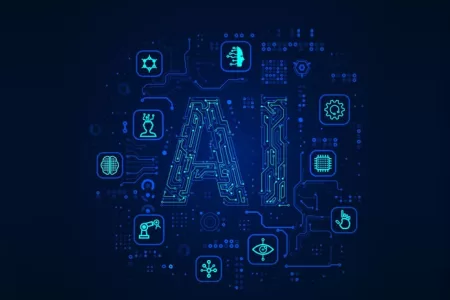Meet Roja Rani Perumandla: Driving Innovation in Healthcare Automation
The healthcare industry, long burdened by administrative inefficiencies and fragmented care delivery, is undergoing a transformative shift. One of the most critical aspects of this evolution is population health managementa discipline that aims to improve health outcomes across large groups by analyzing data, streamlining care coordination, and enabling proactive interventions. Amid this transformation stands Roja Rani Perumandla, a leading figure in health informatics whose groundbreaking work in population health case management automationis helping to redefine how healthcare is delivered, monitored, and optimized across the U.S.
As a healthcare technology expert and academic at Eastern Illinois University, Perumandla is at the forefront of developing scalable and intelligent health IT frameworks that blend artificial intelligence, cloud computing, and clinical decision support systems. Her recent publication in the International Journal of Information Technology and Management Information Systemsoutlines a comprehensive guide to automating case management a game-changing advancement for healthcare providers and patients alike.
Identifying a Critical Gap in Healthcare Systems
Historically, case management in healthcare has relied heavily on manual processes, siloed data systems, and delayed responses to patient needs. These inefficiencies often led to missed diagnoses, delayed interventions, andhigher costs. The challenge was clear: healthcare systems needed a way to proactively manage patient populations not just react to crises.
This issue was particularly pressing in managing chronic diseases, elderly care, and post-discharge monitoring, where timely decision-making could make the difference between recovery and readmission. Yet, most healthcare organizations lacked the integrated tools and frameworks to handle population-level data in a secure, scalable, and actionable way.
Architecting the Future of Population Health
To address this challenge, Roja Rani Perumandla spearheaded the design of a technical architecture for automating population health case management, detailed in her 2025 study. Her approach includes:
- AI-driven risk stratificationto identify high-risk patients early.
- Clinical workflow enginesthat reduce alert fatigue by 47% and improve protocol adherence by 38%.
- Cloud-based data platformscapable of processing over 50,000 clinical documents per hour at 95% accuracy.
- FHIR-based system integrationsfor seamless healthcare data exchange across different providers.
What sets her work apart is its multi-layered architecture. It combines a real-time clinical decision support engine, patient engagement platforms, and a robust healthcare security framework that has achieved up to 70% reduction in unauthorized access attempts. Her emphasis on modularity and scalability ensures that these systems can evolve alongside healthcare needs.
Transforming Care One System at a Time
The real-world impact of Perumandla’s innovations is already being felt. Healthcare organizations implementing her frameworks have reported:
- 45% improvement in chronic disease management
- 40% increase in preventive care engagement
- 38% reduction in preventable hospitalizations
- 55% faster population health analysis through AI and cloud integration
Beyond numbers, her systems are empowering clinicians to make faster, more informed decisions, and giving patients tools for better engagement especially vulnerable groups like seniors and individuals with chronic illnesses. Enhanced patient communication systems have also led to a 50% increase in patient portal usage among older adults, demonstrating the inclusivity and reach of these innovations.
A Vision Grounded in Humanity and Technology
Looking ahead, Perumandla envisions a globally connected, AI-enhanced healthcare ecosystemwhere predictive analytics, patient-centered care, and intelligent automation work hand-in-hand. She is particularly interested in further refining cloud-based AI for chronic care, and integrating social determinants of healthinto digital platforms for holistic care planning.
“The future of healthcare isn’t just about machines making decisions,” she notes. “It’s about using intelligent systems to give humans clinicians, caregivers, and patients the clarity, time, and resources to do what they do best: care.”
Conclusion: A Legacy of Smart, Compassionate Systems
Through her work, Roja Rani Perumandla is not merely automating healthcare; she’s reengineering its foundations. By merging deep technical expertise with a compassionate understanding of healthcare’s mission, she offers a compelling blueprint for a future where population health is predictive, personalized, and profoundly more effective.
As the healthcare industry continues its digital transformation, leaders like Perumandla ensure that innovation doesn’t just mean faster it means better.


